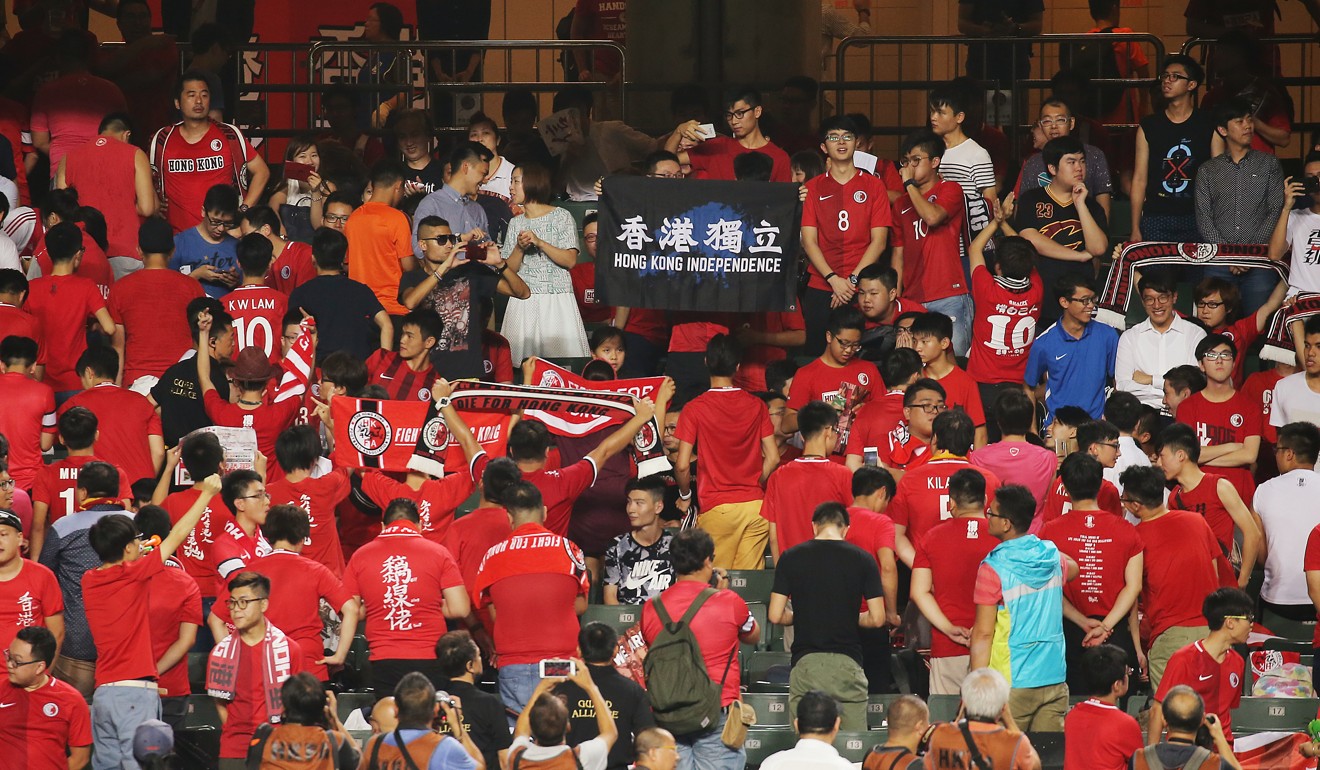
Hong Kong leader Carrie Lam under fire for comparing anthem law to retroactive stamp duty bill
Critics argue criminal laws are different from legislation on civil or revenue matters
Chief Executive Carrie Lam Cheng Yuet-ngor weighed into the debate a day after Secretary for Constitutional and Mainland Affairs Patrick Nip Tak-kuen said the anthem law was unlikely to be applied retroactively. He added that the local version of the legislation would take into account the city’s legal and constitutional traditions.

Under the “one country, two systems” model, a mainland law has to be inserted into Annexe III of the Basic Law, Hong Kong’s mini-constitution, to take effect in the city.
The laws in Annexe III can be promulgated – imported automatically – or adapted through local legislation, a move Hong Kong officials have said they would apply to the anthem law.
From October 30 to November 4, the NPCSC will meet to discuss the first step to include the law in Annexe III.
Earlier this month, Basic Law Committee member and Peking University law professor Rao Geping sparked a row when he suggested that the Hong Kong government record the “illegal behaviour” of locals booing the anthem at a friendly soccer match between Hong Kong and Laos.
Explainer: what will China’s national anthem law mean for Hong Kong?
On Tuesday, Lam was asked if the anthem law would be applied retroactively, and whether the government would consult the public.
“You can rest assured that there will be a consultation process, during which people can express their views,” Lam said.
“Not many laws in Hong Kong are retroactive, but there are some with this effect. To some extent, the stamp duty bill is an amendment that ... will apply to earlier cases,” she added.
Lam was referring to the Stamp Duty (Amendment) Bill 2017, which the Legislative Council has yet to approve. The bill will provide the legal foundation for an increase in stamp duties for residential properties. The increase was announced with immediate effect on November 4 last year.
James To Kun-sun, a lawmaker and lawyer from the Democratic Party, said Lam’s “wrong comparison” would encourage Beijing loyalists to call for a retroactive law.
“Criminal laws in the common law system have never had any retroactive effect ... how could she compare that with a civil, revenue law?” To said.
Stephen Hung Wan-shun, who is a criminal lawyer and former president of the Law Society, agreed with To.
“The criminal law is prohibitory, meaning you can do anything that is not prohibited by the law on this day,” he said.
Hung also noted that criminal laws only had a retroactive effect for the protection of suspects and offenders.
He cited the Rehabilitation of Offenders Ordinance, which states that those convicted for minor crimes will not have a record if they do not offend again within three years.

